Jonathan Sacks has an impressive track record for predicting the age we are in. In his 1990 Reith Lectures, ‘The Persistence of Faith’, the then chief rabbi pushed back against the dominant idea that religion was going to disappear. In the early 2000s, he predicted a century of conflict within Islam. And he was one of the first religious leaders and thinkers not only to critique multi-culturalism (‘the spanner in the works for tolerance’) but to try to think of a path beyond it.
We recently talked over some of this at his house in London, where he lives during gaps in a busy teaching schedule that also takes him to New York. ‘I realised religion is going to come back and it is not going to come back as a post-enlightenment,-thinly–sliced-cucumber-sandwiches vicarage tea party.’ What was the giveaway? ‘De-secularisation.’ It was a phenomenon he noticed first as a rabbi.
People were returning to synagogue or church because they wanted their children to attend a faith school. Not because they believed, but because ‘faith schools have a very strong ethos and they think that that strong ethos will give the kids the kind of virtues they need.’
This, in Sacks’s view, points to a flaw at the heart of the atheist worldview. Faced with the question ‘How do we raise our children?’ — perhaps the most serious question we must ask — non-believers began to flunk the answer. And Sacks reckons that this failure indicates a wider relativistic vacuum in our society.
‘Clearly people are searching for something,’ he says. ‘There is definitely a search for spirituality. Yet spirituality per se is not going to get us where we need to be because spirituality is what happens when religion goes bowling alone. It is very self–focused.’ In lieu of traditional morality, he sees today’s morality as being centred on issues which would once have been seen as political, rather than moral.
‘The real issue is community. That is what market-economic, liberal democratic societies don’t always understand — the community, which is one way of saying the need for identity.’ Secular attempts to found such communities and identities are, he is adamant, doomed to failure. ‘There is now empirical research on that — on communes set up in the United States. Religious ones lasted four to five times as long as non–religious ones.’
None of which, however lucidly and learnedly expressed, demonstrates that God exists. Does it? ‘I think it is a peculiarly Christian predilection to say, “First get me over the hurdle of belief.” In Judaism our biggest heroes tended to have arguments with God. That’s what Abraham does, it’s what Moses does, it’s what Jeremiah does and it’s what Job does. You get 37 chapters of Job asking questions of God and his comfort is he gets to see God, who asks him four chapters of questions of his own.’
Sacks, too, is very good at answering questions with questions. But it is through community and identity that he speaks of ‘belief’.
‘There is a huge attempt right now to find out if we can ground a morality in something other than religious faith. I think the question is on what can we ground a shared substantive ethic strong enough to inspire young people? No society that has no shared ideals on morality will survive for long. The current mania really — it’s a flood of works — is to try and base ethics on Darwinian biology. Some of this is very engaging. But you try and base morality on the mating habits of alpha-male chimpanzees and you are not going to get very far.’
Isn’t it a problem for him and other religious leaders that the world since 9/11 has been caught up in one religion’s very visible troubles? Among the challenges of our time is, as Sacks puts it, the fact that ‘people have found a different way to be modern than the western way’. While he is rarely paralleled in his predictions, he is nevertheless careful in his prescriptions.
‘There is no way that one religion can prescribe for another. I think that change of heart has to come from within a religion. Judaism went through that crisis in the first century ad. Josephus, who was an eyewitness to those events, said that the Jews inside the besieged Jerusalem were more intent on killing each other than Vespasian and Titus and their forces outside. Within two centuries, Jews and Judaism had become a pacific religion — not a pacifist religion but a pacific religion — so that in the third century or around then, when faced with a verse about military virtues, they could no longer understand the process. You can trace it. The same thing happens with Christianity in Europe between the 16th and the 17th centuries and then you get sincere believers like Locke saying “How come Christians are murdering Christians?” Out of that emerges again a formal or substantive separation of the religion and power. Religion moved from power to influence. It follows that it takes a civil war within a religion in the broadest sense to make that religion realise that it must divest itself of power.’ One thing needed in order to do this is for Islam to wrestle with what Sacks calls its ‘hard’ texts.
‘People want to be able to say I am religious but I feel that my faith, the leaders of my faith, have done that hard work in taking us from an age where most people lived in close proximity to people who are like them and have done the hard work in translating that to an age where we have to live with more difference in one mile of a walk along a main city street than a 17th-century anthropologist would have seen in a lifetime. So I think we have to do that work. Jews can’t do it for Christians, Christians can’t do it for Muslims, but I think the sight of people wrestling with those hard texts and trying to make space does actually involve other people in other faiths.’
And where is Islam in that process? ‘My guess is that this happens 15 centuries into the history of Judaism and roughly 15 centuries into the history of Christianity, which explains why it hasn’t happened within Islam yet.’ But since we only have two other mono-theisms to use as a guide, would he concede that this time the good guys might lose?
‘It may be that the founders of Judaism and Christianity, Moses and Jesus, ended on a note of failure. Moses seeing the land from afar, not able to cross the Jordan, and Jesus saying, “My God, my God, why have you forsaken me?” Mohammed ended with success so this is an unknown.’
So this one could end differently? ‘It could.’

Got something to add? Join the discussion and comment below.
Get 10 issues for just $10
Subscribe to The Spectator Australia today for the next 10 magazine issues, plus full online access, for just $10.
You might disagree with half of it, but you’ll enjoy reading all of it. Try your first month for free, then just $2 a week for the remainder of your first year.


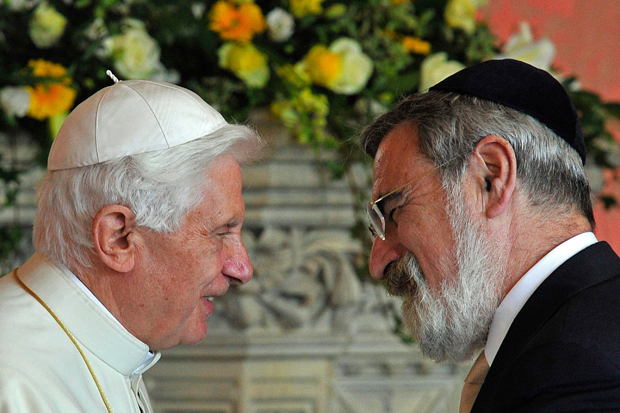
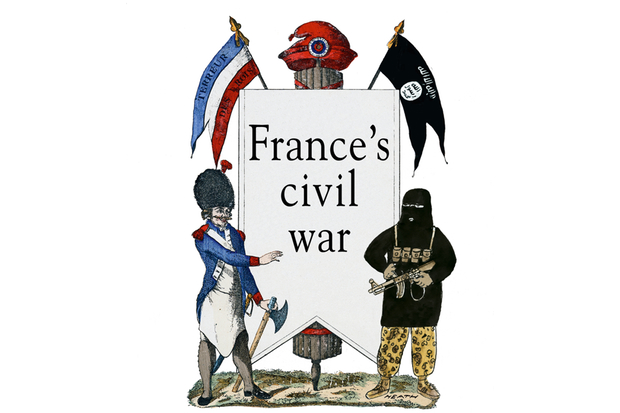
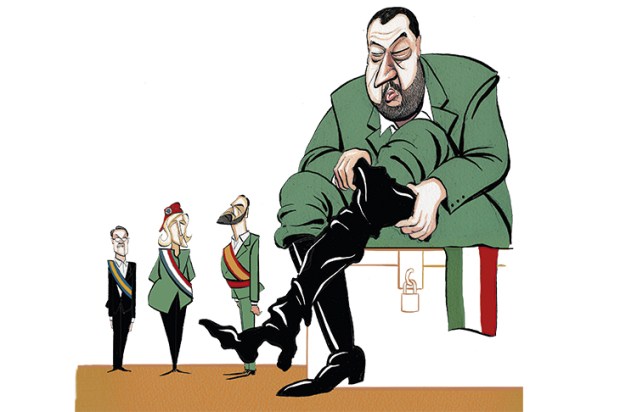
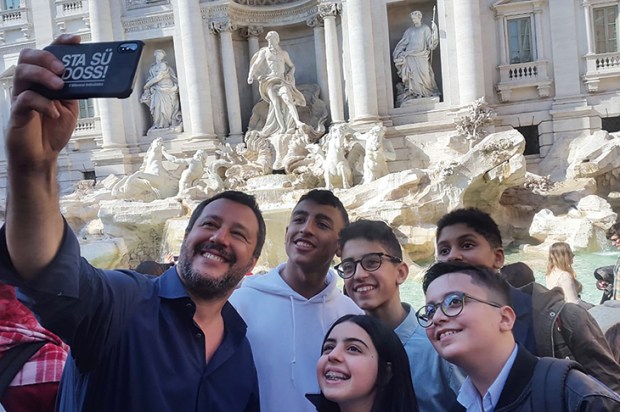
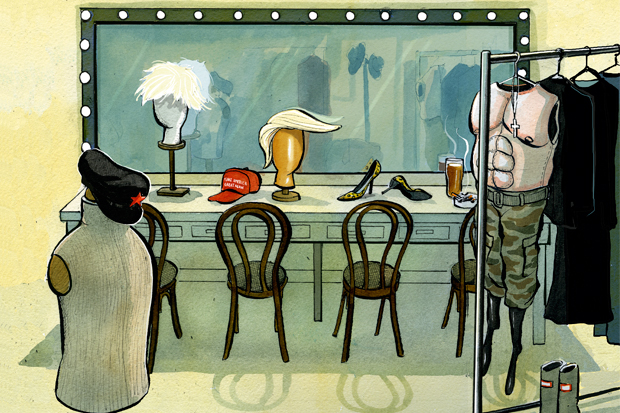
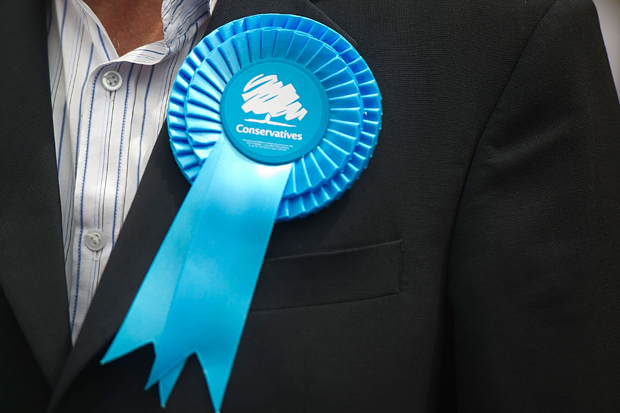
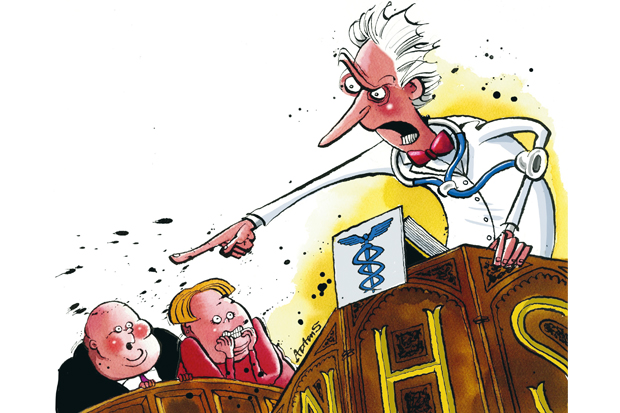






Comments
Don't miss out
Join the conversation with other Spectator Australia readers. Subscribe to leave a comment.
SUBSCRIBEAlready a subscriber? Log in